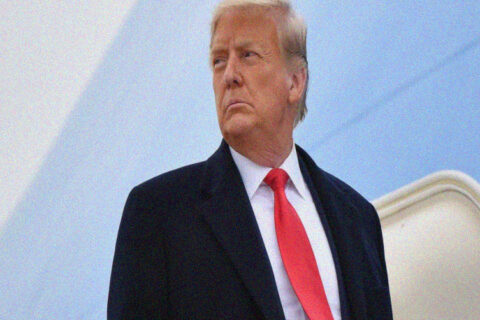Domestically, Trump is off to very entertaining start. However, the Jews have switched from murdering Palestinians and taking them hostage in Gaza to doing the same thing in the West Bank. They’re even laying siege to a hospital and abducting the doctors. His Middle East peace initiative seems destined to fall apart pretty quick.
The other huge question that looms is Ukraine. I was discussing the situation with some American officers last month and my prediction was that there’d probably be a collapse this year. They asked me if I was referring to Ukraine or Russia, so it doesn’t seem like they have a more realistic appraisal of the situation than Trump.
If you’re heading into a negotiation under the assumption that you have leverage which you don’t actually possess, well that’s not a position of strength. If you also presume that the other side is in a precarious condition and must make a deal with you to survive, the result is going to be very embarrassing.
Trump is no different than the rest of the establishment in this regard. He seems to wager that he has leverage in both sanctions and gridlock on the battlefield. I’ll address both over the course of two articles because, objectively, this is a bizarre thing to believe. After observing for nearly three years what they say and then do about Ukraine, one must conclude they keep sipping the Kool-Aid and we’re just waiting for the moment everybody keels over.
In terms of sanctions, the conflict itself was triggered by the United States in order to justify imposing severe enough measures to collapse the Russian economy overnight back in early 2022. Western leaders and commentators placed complete confidence in what turned out to be a total failure. This should be a lasting testament to the laughable incompetence that guides our foreign policy.
According to Medvedev, the reason Russia didn’t intervene as soon as the Kiev coup happened in 2014 was because it needed time to prepare itself to withstand the sanctions this intervention would trigger. The agricultural sector was what he cited in particular. So, Russia was vulnerable but the possibility the situation could change was somehow never taken into account.
Apparently, the West assumed that the Russians were too stupid to spend the eight years between the Kiev coup and their intervention preparing for these fatal sanctions (outlined in American white papers for public consumption) just as NATO spent this period constructing a military quagmire for them in the Donbass.
Trump has cited inflation numbers in Russia without the context that Russia is as close to full employment as possible and that incomes have been rising at a similar place:
“I think, Russia is kinda in big trouble. You take a look at their economy, you take a look at their inflation in Russia. I got along with [Putin] great, I would hope he wants to make a deal,” …
When Putin and his apparatus came to power during Russia’s collapse a quarter century ago, the federation held through an Islamic insurgency sponsored by the CIA even as people were literally starving, salaries of public servants weren’t being paid, and garrisoned soldiers had to beg for food on the streets. A sufferable inflation issue is now supposed to make Putin capitulate? What about our inflation?
In terms of hydrocarbons, Russia’s export volumes have been throttled to some extent. Revenues from these sales overall are still up by at least a few billion dollars, pushing revenues for the government to record levels last month.
Russia’s “ghost fleet” of rogue tankers are actually just ships that don’t have Western insurance, basically. A new round of sanctions against them introduced by the outgoing Biden Administration is causing disruptions to buyers in countries such as India but the lesson of trying to throttle Russia’s exports is that workarounds are always found.
China would have to be on board to really squeeze Russia and the notion that the Chinese are flaky on their support for the Russians is a pure fantasy concocted in the Western media. The Chinese know they’d be next after any success against the Russians. I follow the Chinese language media. There isn’t the slightest bit of skepticism about Russia’s imperative or China being a target of the exact same aggression.
These latest sanctions also prompt the question of why they weren’t introduced long ago since the goal of sanctions has been to collapse Russia since February of 2022. The fact that they weren’t until after the election suggests they’ll be ineffectual and were probably just done to appease Trump’s rhetoric. What more he can do now that he’s back in office is unclear.
What’s never mentioned in all of this is that the prices Americans pay at the pump are a direct function of global prices. In other words, when it comes to what you’re putting into your vehicle this country isn’t self-sufficient. This means that if drastic success was being achieved against Russia, global prices would shoot through the roof and Americans would be feeling the pain.
This begs the question of why trying to strangle the Russian Federation and sow chaos within it until the state collapses would be in the interest of an ordinary American who’s, at best, treading water in terms of his own economic survival. This has been the goal all along, not defending Ukraine’s democracy from an “unprovoked, all-out invasion.”
The notion the United States can use the situation on the battlefield to bring Putin to his knees is even more absurd than more sanctions doing the trick. I’ll address that facet of Trump’s dilemma next time.

I’m proud to officially announce my candidacy for the office of Dogcatcher.






Mother Russia is a strange lady. She could have ended the war in a matter of months, if not weeks, by: 1. Taking out Kiev’s electric grid, and 2. destroying the bridges over the Dniepr. She also inexplicably left some $300 billion plus on deposit in Western banks when even I, sitting in my living room, could see what would happen next.
Then there’s Putin bizarrely speaking of, “Our Western partners” – for months after all the threats and screeching began.
I suppose if we understood his reasoning it might make sense. Wrecking the Western economies might be one of them. Reorganizing Russia into a wartime economy, a la’ The Report From Iron Mountain could be another.
Still, there’s no getting away from this: “In all history there is no instance of a country having benefited from prolonged warfare. Only one who knows the disastrous effects of a long war can realize the supreme importance of rapidity in bringing it to a close.” – Sun Tzu
Tom, looking forward to your articles on this situation.
My apologies with previous comments,
That one about a Drake song was random, and the ID let it posted
I’m just a silly Hill Billy!
Keep up the good fight!
Thanks